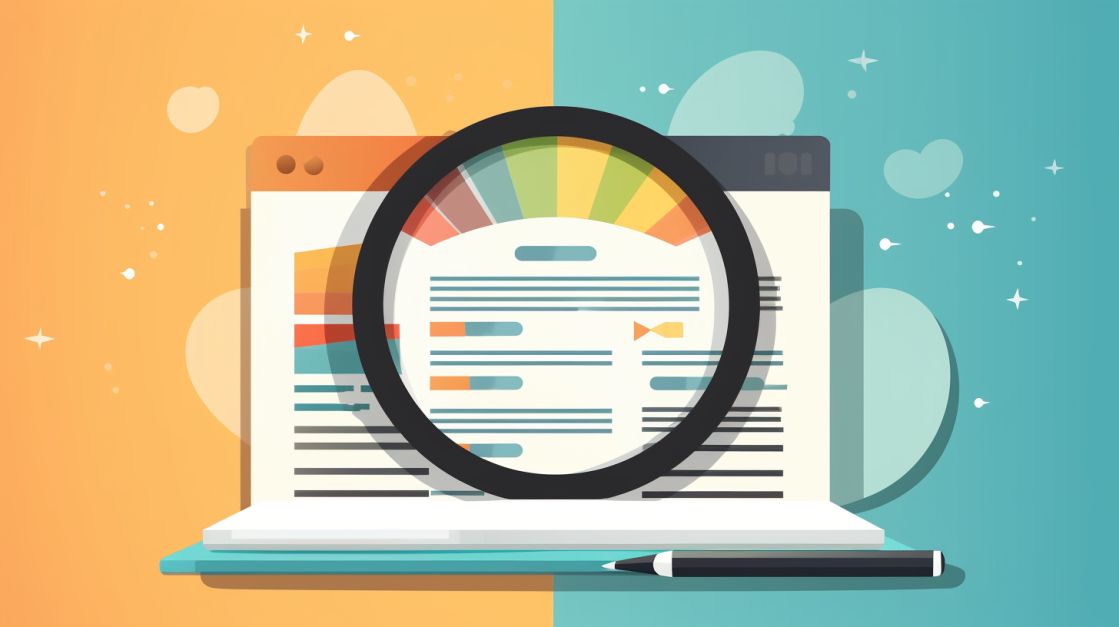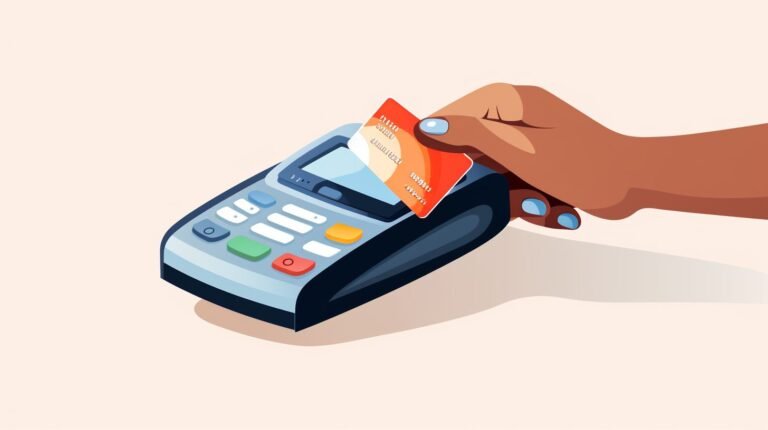Boosting Your Credit Score in 3 Months

Picture this: you’re reviewing your credit score, hoping it’s high enough for that critical loan or card application. Suddenly, your heart drops – the numbers don’t meet expectations.
It’s akin to a financial sucker punch straight to the gut and sadly, I can relate. However, after diving into extensive research and conducting some experiments, I unearthed practical strategies that could substantially elevate your credit rating within just three short months! So buckle up – we’re embarking on a financial fitness adventure designed to give those pesky figures an impressive makeover!
Key Takeaways
- Good habits boost your credit score fast. Pay bills on time and keep low card balances.
- Credit scores are based on five things: payment history, credit use, length of credit, mix of debt types, and new credits.
- Bad marks fade from your report in seven to ten years. But smart moves now can power up your score sooner!
- Reducing the rate at which you use available credit helps a lot. Use under 30% of each card’s limit for best results.
- Every person needs to check their own report often. Fix wrong details right away to help raise that key score higher!
Understanding Your Credit Score
Your credit score isn’t a mystery – it’s calculated based on several factors, including your payment history, debt amount and length of credit history. Having a good credit score is crucial – lenders use it to gauge your reliability when you’re borrowing money, so let’s dive straight into learning how these scores are shaped!
How credit scores are calculated
Your credit score comes from five big parts. First, we have your payment history showing how good you are at paying bills on time. This is the most important piece! Next up is your credit use.
That means how much of your total credit you’re using right now. Thirdly, they look at how long you have had any sort of credit to see if you’re reliable over a long period of time.
Fourthly, it’s about the mix – do you only have credit cards or also other types like loans? Last but not least; new credits joins in too – did anyone recently give you a new loan or card? So don’t worry folks! It’s not as scary as it seems and understanding what all these mean can really help us take charge in increasing our numbers.
The importance of a good credit score

A good credit score is like a key. You can open many doors with it! It helps you borrow money easily. Banks look at your credit score to decide if they will lend you money or not. If your score is high, the banks trust you more.
The good stuff does not end there though! A great credit score also means lower interest rates on loans and lines of credit. With these benefits, reaching your dreams becomes easier whether it’s buying a house or starting a business.
So, always keep an eye on that score.
Time Frame for Boosting Your Credit Score
Boosting a credit score doesn’t happen overnight, in fact, it can take from several weeks to months. Your starting point plays an integral role in how long it will take for your score to rise.
If you have had derogatory marks like collections or bankruptcy on your credit report, understand that these negative impacts linger for years before they’re wiped clear. Every little effort counts as we strive to improve our creditworthiness within this 3-month timeframe plan.
The impact of starting point on score improvement

Your starting point counts a lot in improving your score. If you have a low score because it’s the first time you’re building credit, then good news! You can see big changes in only three months.
But if your debt is high, it might take more time. Clearing up that debt will surely help raise your score. In hard times like after missing payments or filing for bankruptcy, know this – fixing your credit score takes time and patience.
Some of these bumps can take years to get over fully but remember they are not forever. Your actions now will shape how soon and well your recovery goes.
Time needed for derogatory marks to stay on your credit report
Bad marks on your credit report can take some time to fade. These are called derogatory marks. Often, they stay in place for up to seven years. Items such as late payments, repossessions and debt collections belong here.
Bankruptcies play by their own rules though. For example, a Chapter 13 bankruptcy hangs around for seven years while the Chapter 7 style stays with you for a full ten years!
Strategies to Increase Your Credit Score in 3 Months
Start by building up your credit file steadily, keeping a strict schedule for timely payments to avoid unwanted late fees. Don’t ignore older past-due accounts; catch up on them as much as you feasibly can.
Work towards maintaining lower balances on any revolving account you have and hold yourself back from incessantly applying for new accounts; every hard inquiry can leave a temporary dent in your score.
Building your credit file
Starting to build my credit file is a key step. Here’s how I plan to do it:
- Apply for a secured credit card: With this, I can start to show lenders that I am responsible. I will put a small deposit for the card and use it wisely.
- Make all payments on time: This is important. As shown in important facts, paying bills when due affects my credit score the most.
- Stay below my credit limit: It’s smart to use less than 30 percent of my card limit – so I aim there!
- Open more than one type of loan: This can help to raise my score if I handle them well.
- Take time to check my credit report: Once a year, free checks are offered, and they are worth doing.
- Be quick to pay off debt if possible: Moving debt around isn’t the best idea. Paying it off helps boost scores instead.
Ensuring timely payments
Paying all your bills on time is key. It is the most important step you can take to boost your credit score in three months:
- Paying on time shows lenders that you are reliable.
- Late payments can hurt your score.
- Missed payments stay on your credit report for seven years.
- Setting up automatic payments with billers is a good move. This makes sure you never miss a deadline.
- Make at least the minimum payment on each card every month.
- Even if money is tight, try to pay something towards each bill.
- Think about using budget apps or tools to help manage your bills.
- If you ever miss a payment, make it up as soon as possible.
Catching up on past-due accounts

Taking steps to catch up on past-due accounts can help boost your credit score. Here’s what you need to do:
- Reach out to the lenders. Start by talking to the companies that you owe money to.
- Set up a payment plan. Lenders often like when you show that you want to pay them back.
- Stick with the plan. Pay a little bit of what you owe each month.
- Avoid missing any more payments. A missed payment can knock down your credit score a lot.
- Try to pay off any collections if possible. This action can lead to a rise in your credit score over time.
Paying down revolving account balances
Let’s talk about shaking off your revolving account balances. Making a plan is key.
- Place focus on high – interest debt first.
- Split your payment into two parts within the month.
- Set up auto – pay to never miss a due date.
- Stop using your credit cards while paying them off.
- Put any extra cash towards these debts.
Limiting applications for new accounts
I work on limiting my applications for new accounts. Why so? Here’s how it aids me in improving my credit score:
- I avoid building up “hard inquiries“. Each time I apply for a new account, a lender does a hard pull of my credit info. This can scratch off points from my credit score.
- It helps me build a stronger “length of credit history“. Opening many new accounts shrinks the average age of my lines of credit. Companies see a brief credit history as risky.
- I lower the odds of getting into more debt. More credit cards mean more chances to spend, more to repay, and therefore, increase the risk of late payments.
- It gives me room to keep up with all my bills on time – having fewer accounts means less to manage.
Reducing Your Credit Utilization Rate
You can significantly boost your credit score by lowering the cumulative balance on your credit cards in proportion to your total available credit – that’s what we call “credit utilization rate“.
Requesting a credit limit increase
Ask your card issuer for a higher limit. Here are some steps to do just that:
- Check your current credit status. Pull your credit report and note down your scores.
- Approach your bank or card issuer with a request for a higher limit. Be sure to sound confident and indicate reasons why you’re worthy of this increase.
- Try not to push for too high a limit at once. A small but steady increase over time can be more beneficial.
- Show them you can handle the extra credit by always paying on time.
- Keep your credit utilization rate under control even after the increase.
Applying for a new credit card
Let’s talk about applying for a new credit card. Doing this helps raise your credit score in three months or even less. Here’s how:
- A new card lifts your full credit limit. This means more money you can use.
- It lowers your credit use rate, which makes up 30% of your total score. The lower the rate, the better your score gets.
- Be sure to keep tabs on any card balance! Try to keep it under 10% of what you can fully use.
- Getting cards from different places improves your “credit mix“. This is 10% of your total score.
- You must pay all bills on time with this new card. Your payment history makes up an important part of your score (35%).
- But, do not apply for too many new cards at once! Too many hard asks lower your credit score.
Paying off your card with a personal loan
We’ll look at how to pay off your card with a personal loan. This is a good way to lower your credit use rate. Here is what you need to do:
- Apply for a personal loan.
- Use the loan money to clear your card debt.
- Lay out a plan to pay back the loan on time.
- Stick to your plan until the loan is all paid off.
Addressing Inaccuracies in Your Credit Report

It’s essential to identify and correct any discrepancies in your credit report quickly, as these inaccuracies can lower your score. Deal with late payment reports that were marked erroneously right away by seeking forgiveness or disputing them actively.
You can also enhance your credit file by adding regular utility and phone payments to it, after checking if they are being reported or not.
Seeking late payment forgiveness
Here are some tips to seek late payment forgiveness:
- Reach out to your credit card company.
- Ask if they can forgive your late payment.
- Tell them why you missed the payment.
- Show you have a record of on – time payments before this miss.
- Make sure to pay the missed amount right away.
Disputing inaccurate information
To fix your credit score, you need to check if there is wrong data in your credit report. It can be a key part of boosting your credit score in 3 months. Here’s how to do it:
- Request a copy of your credit report. Use websites like annualcreditreport.com for this.
- Look through the whole report with care.
- If you see a mistake, write it down and get proof if you can.
- Write to the credit bureau about the wrongful data. Send them any proofs you have too.
- They will look into the issue within thirty days.
- If they agree with you, they will change your report.
Adding utility and phone payments to your credit report
I will now talk about how adding utility and phone payments to your credit report works.
- Start with a chat with your service providers. Ask if they share payment history information with the main credit bureaus.
- Use reporting services like Experian Boost if your landlord or property management company does not report payments.
- Keep in mind that making on – time payments to utility and phone companies can lift up your score.
- Experian Boost is a handy tool at this point. It helps you add positive bill payments to your credit report.
- The longer you keep up these payments, the more they work for your score benefit.
- Every timely payment counts, big or small! Even tiny amounts add up over time.
- With each passing month of on – time payments, you strengthen your credit score a little bit more.
Monitoring Your Credit Score Progress
Keeping an eye on your credit score is crucial in knowing if you’re on the right track. From utilizing free resources online to using dedicated credit monitoring tools, close and regular reviews of your report can help address any changes swiftly.
Ready to stay informed? Dive into the next section which elaborates specifically about how to do this effectively!
Regular review of credit reports
Checking your credit reports often is needed.
- Regular checks help you see your progress. It shows how much your score improves within 3 months.
- If you have little or no credit history, this check helps. It tells you when the score starts to climb.
- Finding mistakes are easier with regular checks too. You can then work on fixing them.
- Checks alert you if debt is hurting your score too much. This allows time to find a way to lower it.
- If payments were missed in the past, checks show that too. Repairing credit will take more time if this is seen.
- Reviews will tell you if paying on time raises your score high enough.
- Forms of debt can change ratings as well, good and bad ways both count.
Utilizing credit monitoring tools
Making use of credit monitoring tools can be a smart move. These tools help you watch your credit score change and grow. Let’s take a look at what they offer:
- They give you access to credit scores from three places – Equifax, Experian, and TransUnion.
- If someone opens a new credit card in your name, these tools will tell you. It’s a good way to stop theft or fraud before it gets worse.
- Catching up on any late bills is key. One missed payment can drop your score by up to 100 points.
- It is ideal to keep your credit card balances low. Try for 10% or less of each credit line you have. This will make your credit score go up.
- Paying off collection debts can also bump up your score, just know the record will stay on your report for seven years.
How Can Student Loans Affect My Credit Score?

Student loan credit impact: Student loans can have a significant effect on your credit score. Making timely payments can positively impact your credit, while missing payments or defaulting can harm it. Additionally, taking on more debt with student loans can increase your credit utilization ratio, potentially lowering your score. It is crucial to manage your loans responsibly to maintain a healthy credit profile.
Other Considerations for Boosting Your Credit Score
Apart from the major strategies, there are other factors that can also have a significant impact on boosting your credit score like keeping open old accounts, effectively dealing with delinquencies and potentially consolidating your debts.
Stay tuned to learn more about these considerations and how they can give your credit score an extra boost in just 3 months!
Keeping old accounts open
A good way to boost credit score is keeping old accounts open. Here are the key reasons why:
- Old accounts show how long you have used credit.
- This length of time gives lenders a look at your habits.
- They can see if you pay your bills on time.
- Old accounts add to your overall credit line.
- An unused account shows you do not rely on borrowed cash.
- Lenders like this as it means you can handle debt well.
- Closing old paid – off accounts can lower your credit score.
- Also, losing an old account makes your available credit less.
- Your balance may be the same but now it takes up a bigger part of your limit.
Dealing with delinquencies
Getting your late bills current again is a key way to fix delinquencies. I have found that it’s better to quickly deal with missed payments. This is because they lower the credit score a lot.
I used budget plans and even savings to clear old debts so my score could go up. In some cases, talking to creditors might help you work out new payment terms, making it easier for you to pay on time in the future!
Considering consolidating your debts
Start to think about pulling all your debts together. This method is known as debt consolidation. Here are some steps you can take:
- Look for a loan with low interest rates. You will find this makes your payments easier.
- Think about moving your credit card balances to a single card. Pick one that doesn’t charge interest for a few months.
- Mind the fee when moving balances. It can be between 3% and 5% of the money moved.
- Try to clear your debt, not just move it around. This will lift your credit score.
- Aim to have different kinds of credits, like loans and credit cards in your name to better your score.
- Use debt consolidation as an option if you want to raise your credit score fast.
Conclusion

Boosting your credit score quickly isn’t hard. You just need to follow some steps. Keep paying bills on time and don’t use too much of your credit limit. Make these habits stick, and you’ll see a higher score in 3 months!
FAQs
1. What does it mean to boost your credit score?
Boosting your credit score means taking steps like debt relief, maintaining low balances on your cards, or using good debt management plans. Your FICO Score or VantageScore can increase if you do these right!
2. How can I build my credit in 3 months?
To build credit fast, start with paying debts and keeping a low balance on revolving accounts like credit cards. Also become an authorized user on someone’s card and make sure rent or utility payments are reported!
3. Can getting more secured cards improve my bad credit history?
Yes! A safe way to build credit is by using secured cards from card issuers like Capital One or Discover. Just pay back what you owe each billing cycle.
4. Which card should I use if I got denied because of poor Credit?
Try the Capital One Platinum Card or the OpenSky Secured Visa Card when you got denied for having poor credit.
5.Are there ways to fix negative information about me in report details?
You have the right to dispute wrong facts about yourself in report details . Contact groups such as Bankrate for help with this fight!
6.What happens when there’s “credit invisibility”?
If banks can’t find much data about how you’ve handled loans before, they call it ‘credit invisibility’. You might face trouble getting approved for mortgages and other loans until lenders see more proof of responsible borrowing!






